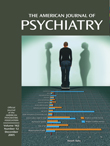To the Editor: Clinical issues are complex, and study results reflect the methods and subject groups used. Therefore, the “true” answer to a question is likely to be found only when one pays attention to differences as well as similarities across research reports. So if the unpublished study cited by Drs. de Bruijn and van den Brink generates some different answers than the current report, such disagreements may offer important insights into the questions raised. However, Drs. de Bruijn and van den Brink incorrectly asserted that in our study, 70% of the subjects with abuse at baseline endorsed no abuse criterion at follow-up. In Table 2 of our study, 54% of the subjects who had three or more experiences with any alcohol abuse item at study entry reported at least one problem at follow-up, 42% endorsed a dependence item, and 25% experienced at least one abuse item at least three times. Therefore, between 54% and as many as two-thirds may have had such experiences.
The letter also incorrectly states that we reported no differences between those with one versus two abuse items at baseline. The tables reveal that those with two or more items had more problems at follow-up, as well as more legal difficulties, and more often developed dependence. The question is whether requiring two abuse items justifies the loss of the ability to diagnose individuals with one item when the latter also predicted adverse outcomes. Similarly, Drs. de Bruijn and van den Brink contend that our results suggested that all abuse criteria performed equally well, but our tables note differences in the proportion endorsing specific items, their demography, and some differences in outcome (e.g., 1.7 future problems for those with hazardous use versus 3.05 for those with baseline social problems). However, with the possible exception of legal problems, there were enough similarities across criteria to consider continuation of the use of those items. Contrary to what Drs. de Bruijn and van den Brink state, a wide range of cross-sectional validators and outcome measures were incorporated into our study. These include drug use, alcohol problems, and demography, as well as quantities and frequencies of intake. This range of items appears to adequately measure aspects of abuse criteria. Finally, Drs. de Bruijn and van den Brink question the validity of our results. Apparently, rather than validity, they are referring to reservations about the generalizability of the sample used by the Collaborative Study on the Genetics of Alcoholism. As we highlighted in paragraphs five, nine, and 10 of the Discussion section, of course our study group had liabilities as well as assets. We agree that the interpretation of any results must consider both the methods and the populations used. The final answer regarding the reliability and predictive validity of the abuse criteria requires careful evaluation of a range of studies using different methods in different subjects. Giving careful consideration to the different results across studies without rejecting the findings from careful investigations that disagree with one’s own data is how science steps forward.

